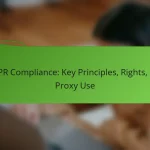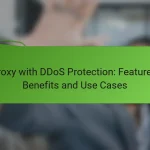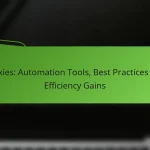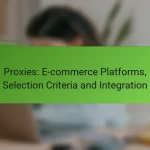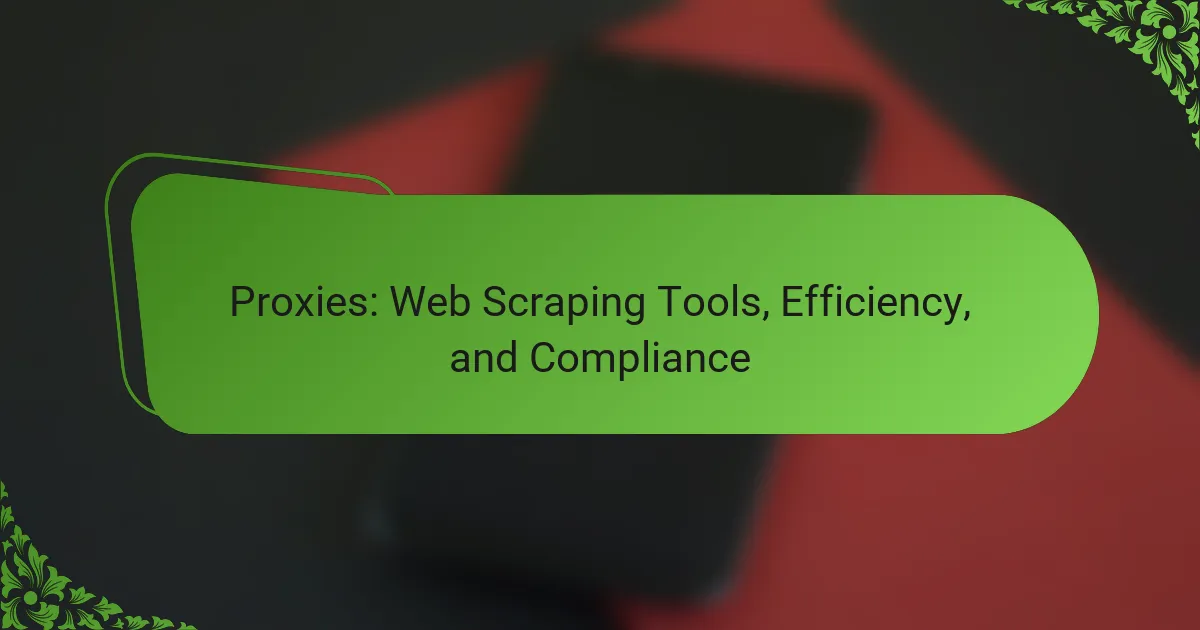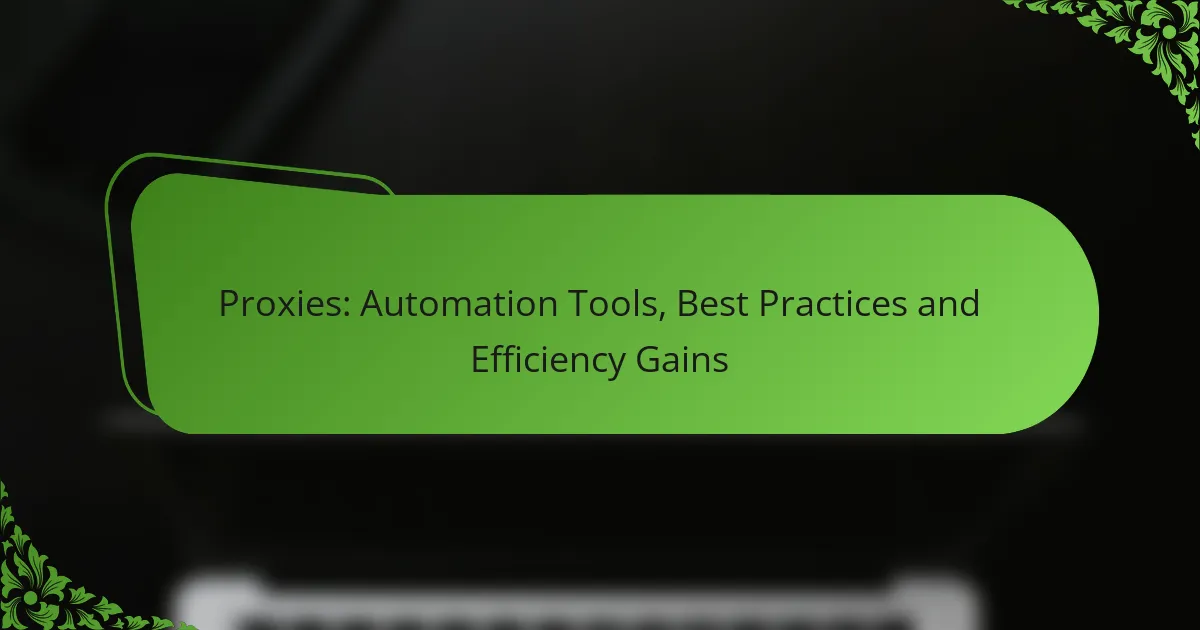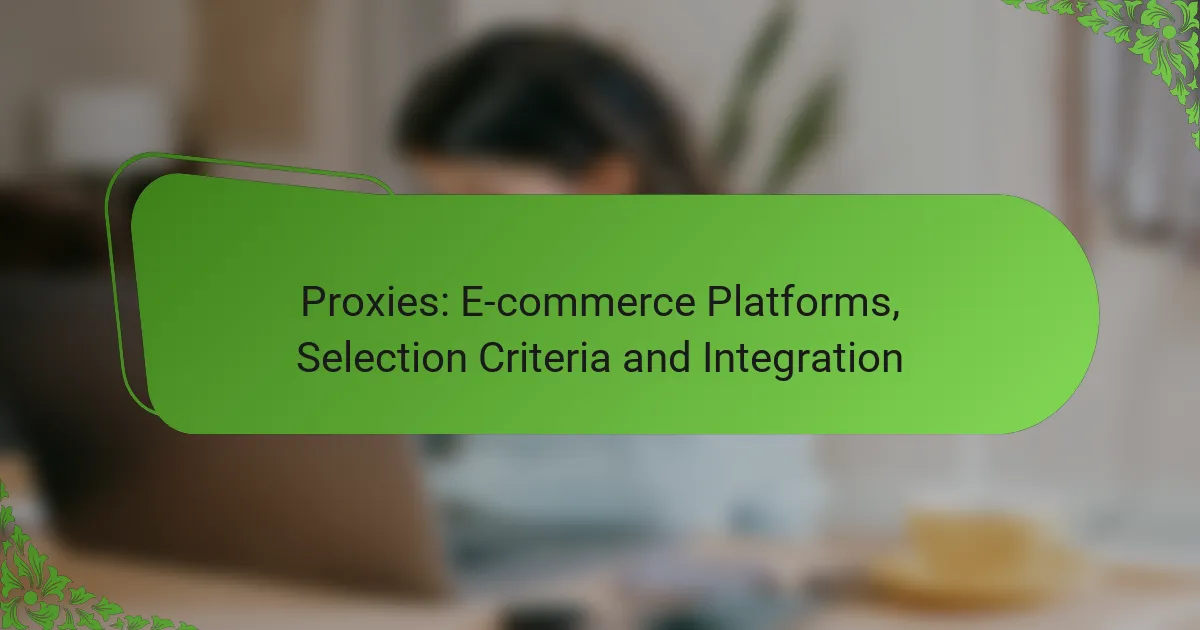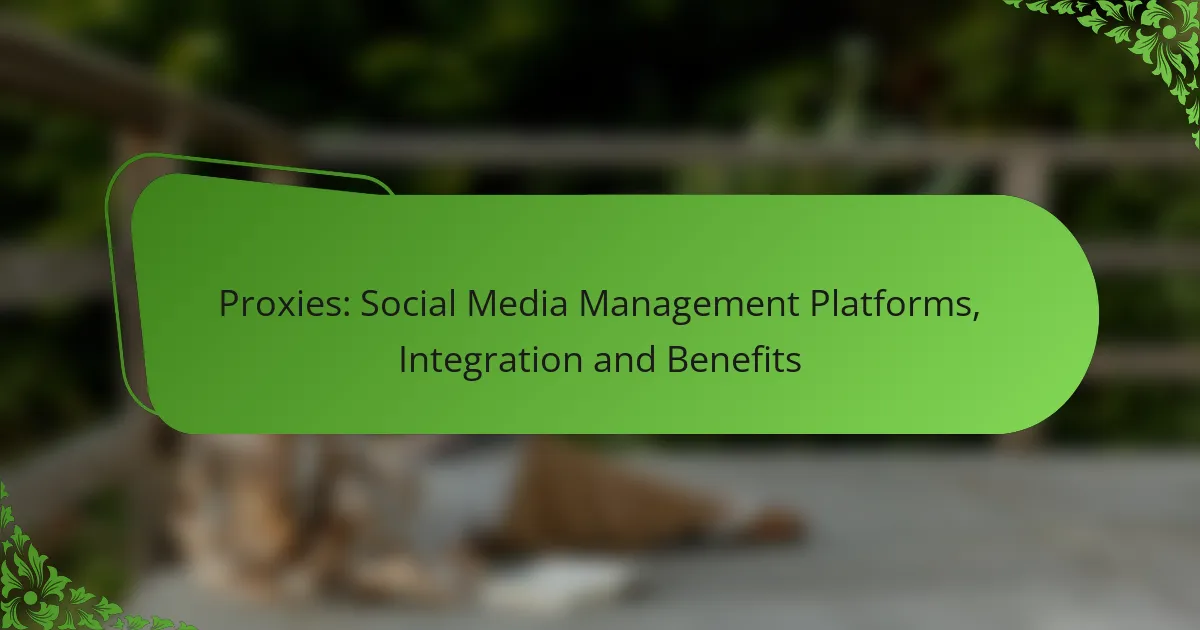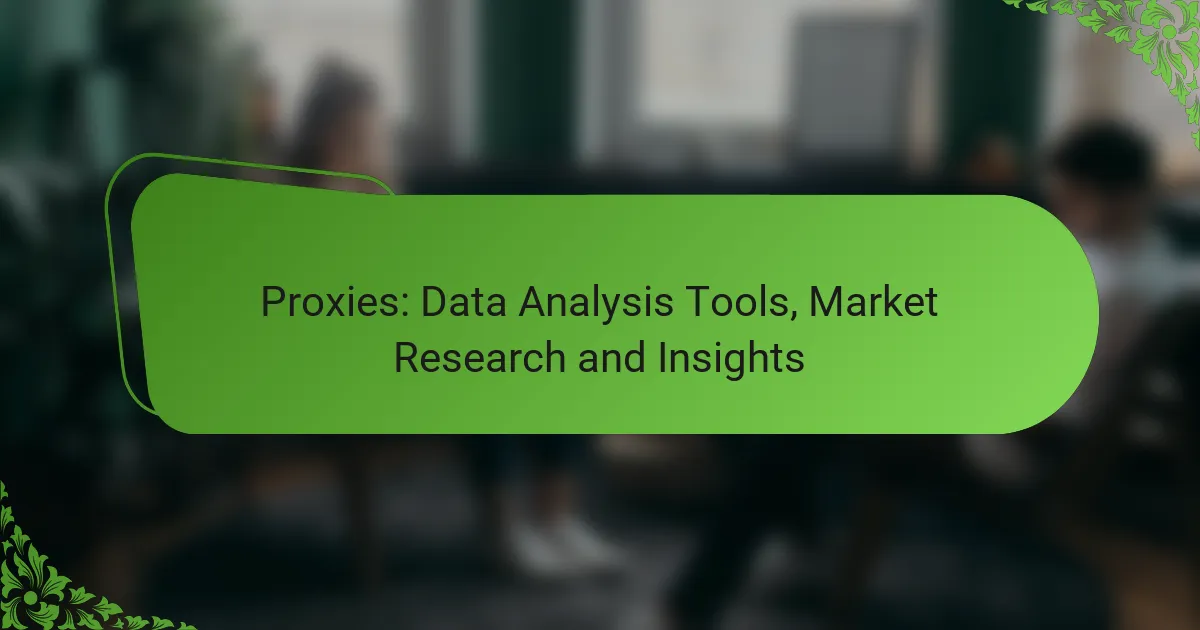Proxies play a vital role in web scraping by enhancing efficiency and ensuring compliance with regulations. By using reliable services like Bright Data, Smartproxy, and Oxylabs, users can bypass restrictions and streamline data collection. However, it’s essential to navigate the legal landscape carefully to adhere to data protection laws and website terms of service.
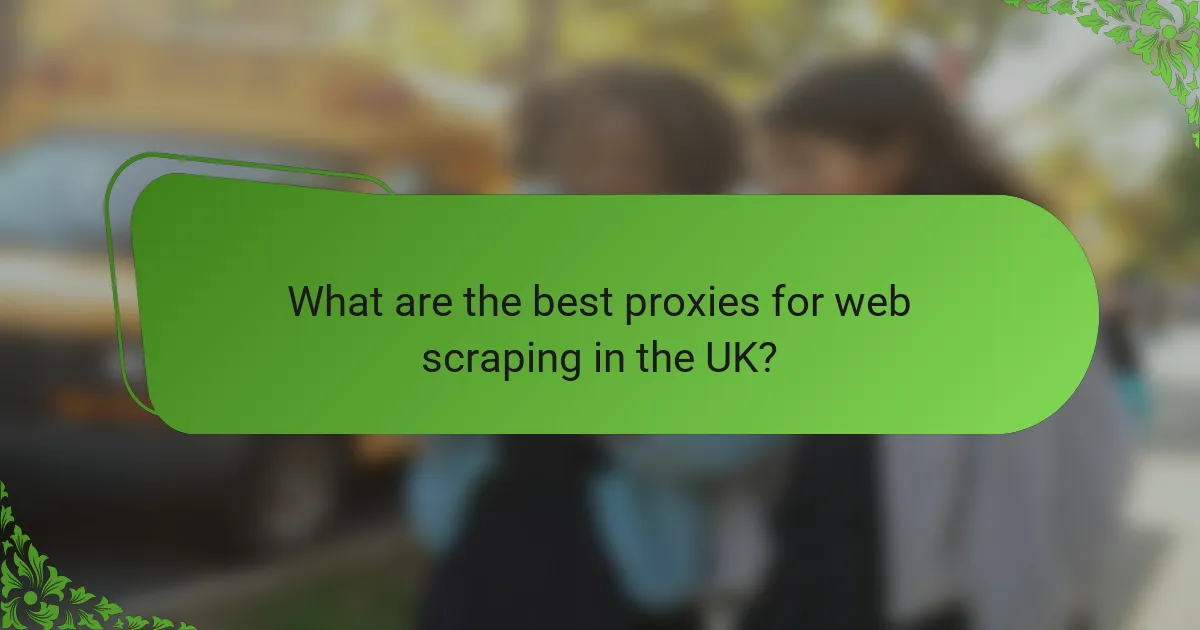
What are the best proxies for web scraping in the UK?
The best proxies for web scraping in the UK include Bright Data, Smartproxy, and Oxylabs. These services provide reliable IP addresses that help bypass restrictions and enhance data collection efficiency while ensuring compliance with local regulations.
Bright Data
Bright Data, formerly known as Luminati, offers a vast pool of residential IPs, making it a top choice for web scraping. It allows users to access millions of IP addresses across various locations, which is crucial for gathering data from geo-restricted websites.
When using Bright Data, consider its pricing model, which is based on bandwidth consumption. This can lead to costs that vary significantly depending on your scraping volume. Users should also be aware of the ethical implications and ensure compliance with data privacy laws.
Smartproxy
Smartproxy is known for its user-friendly interface and competitive pricing, making it suitable for both beginners and experienced scrapers. It provides access to a large pool of residential and datacenter proxies, allowing for efficient data extraction.
This service offers features like session control and rotating IPs, which help maintain anonymity during scraping. Users should keep in mind that while Smartproxy is effective, it may have limitations on the number of concurrent connections, which could affect large-scale scraping operations.
Oxylabs
Oxylabs is a premium proxy provider that specializes in residential and datacenter proxies, catering to businesses that require high performance and reliability. Its extensive network ensures fast and stable connections, which is vital for scraping large datasets.
Oxylabs also offers advanced features like real-time data collection and a dedicated account manager for enterprise clients. However, its pricing may be higher than other options, so it’s essential to evaluate your budget against your scraping needs before committing.
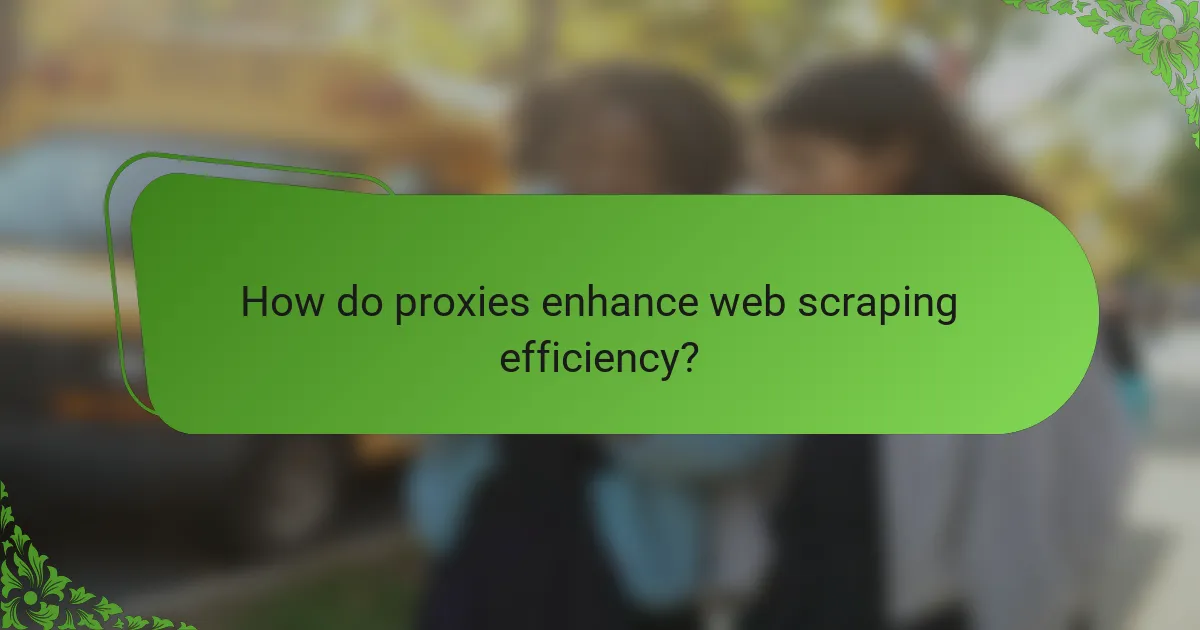
How do proxies enhance web scraping efficiency?
Proxies significantly boost web scraping efficiency by distributing requests across multiple IP addresses, which helps to manage load and access data more quickly. They allow scrapers to bypass restrictions and maintain a steady flow of data collection without interruptions.
Improved speed
Using proxies can enhance the speed of web scraping by enabling simultaneous requests from different IP addresses. This parallel processing reduces the time needed to gather large datasets, as multiple pages can be accessed at once rather than sequentially.
For example, if a scraper can send requests from 10 proxies instead of one, it can potentially reduce the total scraping time by a factor of ten, depending on the target site’s response time and limitations.
Reduced IP bans
Proxies help minimize the risk of IP bans by masking the actual IP address of the scraper. When requests come from various proxies, it becomes harder for websites to detect and block scraping activities, as the traffic appears to originate from different users.
To further reduce the chances of being banned, it’s advisable to rotate proxies frequently and use residential proxies, which are less likely to be flagged compared to data center proxies. This strategy can help maintain uninterrupted access to the target site.
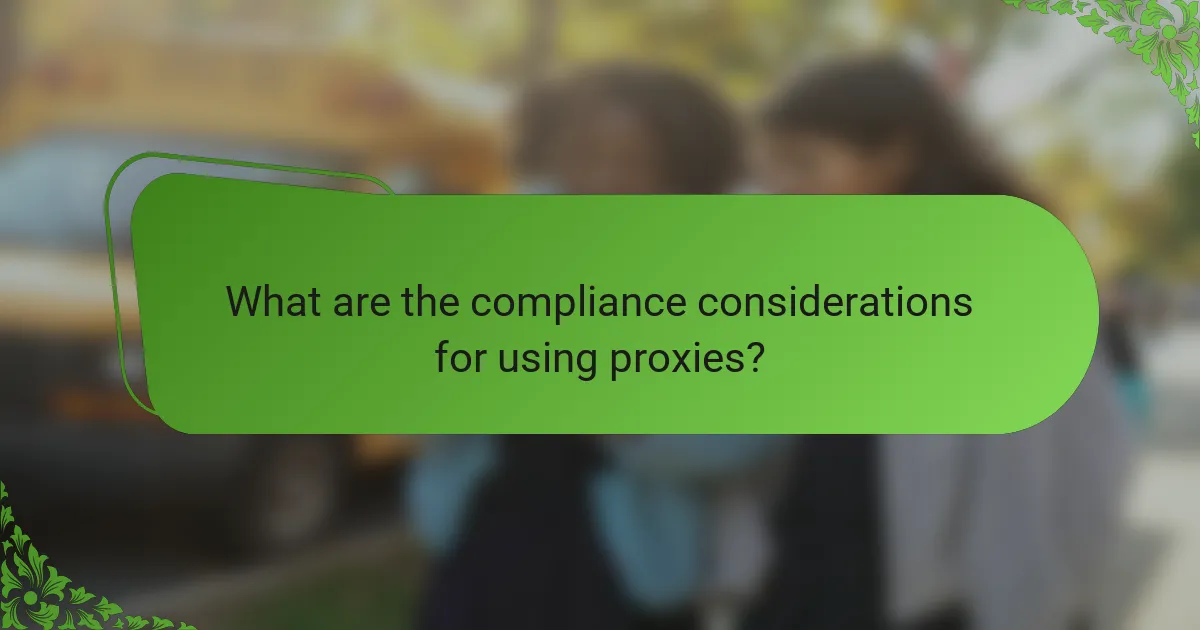
What are the compliance considerations for using proxies?
When using proxies for web scraping, it is crucial to consider compliance with relevant laws and regulations. This includes understanding data protection laws and adhering to the terms of service of the websites being accessed.
Data protection laws
Data protection laws, such as the General Data Protection Regulation (GDPR) in Europe, impose strict guidelines on how personal data can be collected and processed. When using proxies, ensure that the data you scrape does not violate these regulations, especially if it involves personal information.
To remain compliant, familiarize yourself with the specific data protection laws applicable in your jurisdiction. For instance, unauthorized collection of personal data can lead to significant fines, so always assess the legality of your scraping activities.
Website terms of service
Each website has its own terms of service that outline acceptable use and restrictions. Scraping data from a website that explicitly prohibits it in their terms can lead to legal repercussions, including being banned from the site or facing lawsuits.
Before scraping, review the website’s terms of service carefully. If the terms are unclear, consider reaching out for clarification or seeking legal advice to avoid potential violations. Always prioritize ethical scraping practices to maintain good standing with website owners.
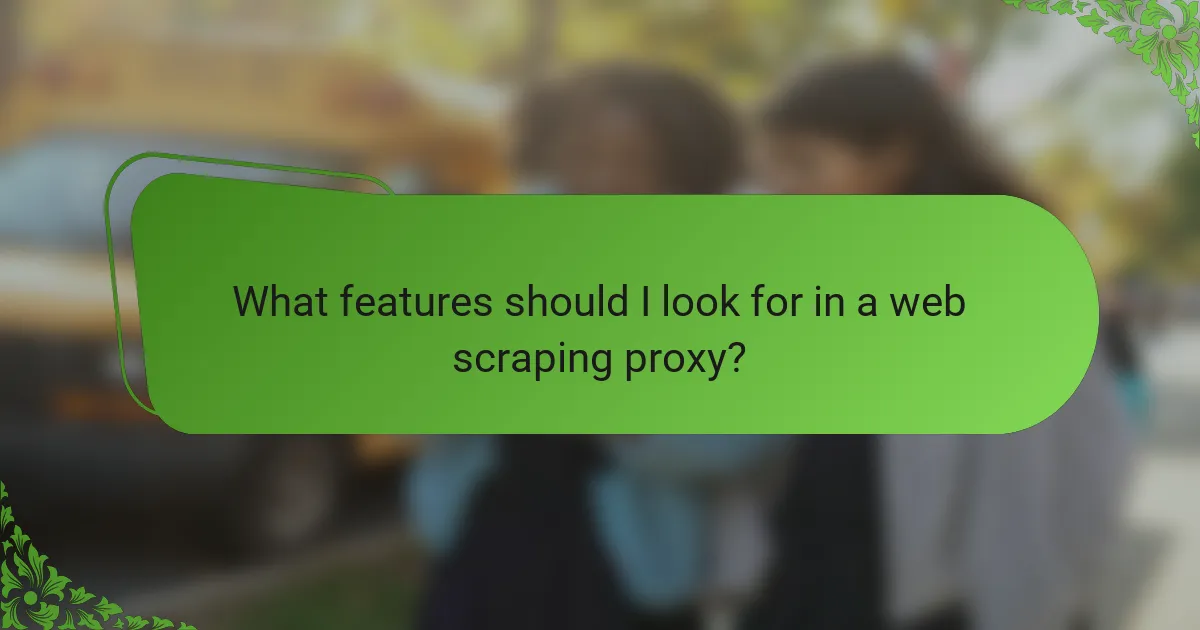
What features should I look for in a web scraping proxy?
When selecting a web scraping proxy, prioritize features like IP rotation, geolocation options, and connection speed. These elements significantly impact the effectiveness and efficiency of your scraping tasks, ensuring you can gather data without being blocked or slowed down.
IP rotation
IP rotation is essential for web scraping as it helps prevent your requests from being flagged as suspicious. A good proxy service should offer automatic IP rotation, allowing you to change your IP address frequently, which can be crucial when scraping large volumes of data.
Look for proxies that provide a large pool of IP addresses, ideally in the thousands. This variety reduces the risk of encountering bans and improves your chances of accessing the data you need without interruptions.
Geolocation options
Geolocation options allow you to select IP addresses from specific countries or regions, which can be vital for accessing geo-restricted content. When scraping data that varies by location, having proxies with diverse geolocation settings enables you to mimic users from different areas effectively.
Choose a proxy provider that offers a range of geolocation options, including major markets like the US, EU, and Asia. This flexibility can enhance your scraping strategy, especially for e-commerce or localized data extraction.
Connection speed
Connection speed is a critical factor in the efficiency of your web scraping efforts. Fast proxies ensure that your requests are processed quickly, reducing the overall time spent on data collection and improving productivity.
When evaluating proxies, look for those that advertise low latency and high bandwidth. Aim for speeds that are in the low tens of milliseconds for optimal performance, as this will allow you to scrape data more effectively without significant delays.
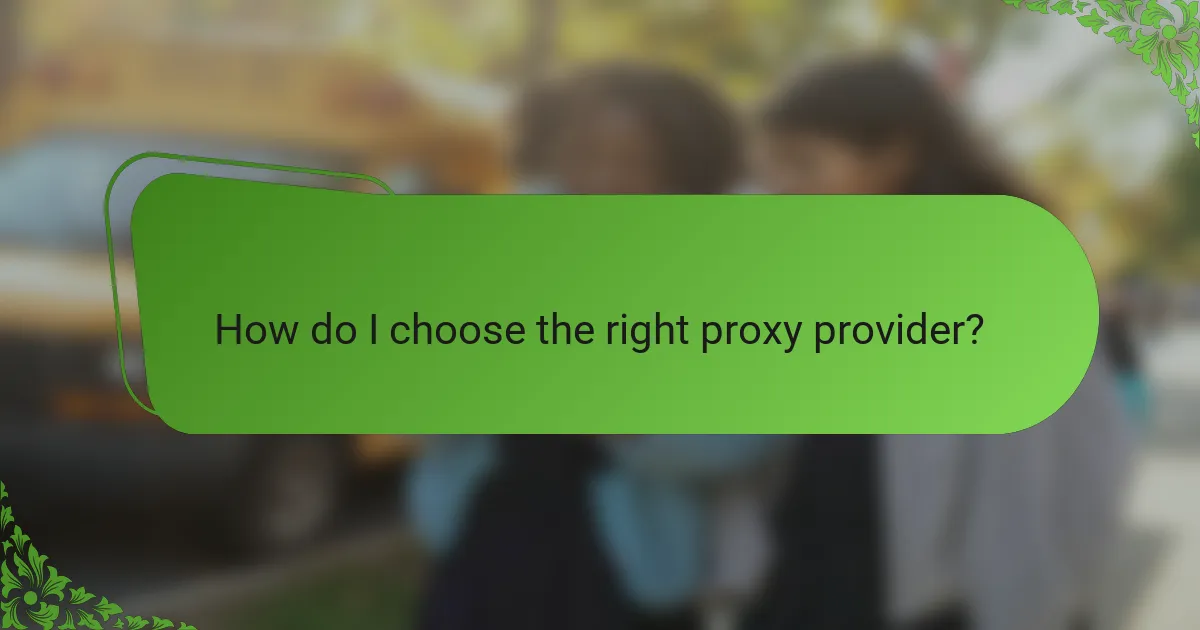
How do I choose the right proxy provider?
Choosing the right proxy provider involves assessing your specific needs, including the types of tasks you will perform and the level of anonymity required. Key factors to consider include pricing models, customer support, and the geographical location of proxy servers.
Pricing models
Proxy providers typically offer various pricing models, including pay-as-you-go, subscription plans, and tiered pricing based on usage. Pay-as-you-go can be cost-effective for occasional users, while subscriptions may provide better value for heavy users.
When evaluating pricing, consider the number of proxies you need, bandwidth limits, and any additional features like dedicated IPs or rotating proxies. Some providers may offer free trials or money-back guarantees, allowing you to test their services before committing.
Customer support
Reliable customer support is crucial when selecting a proxy provider, especially if you encounter issues during web scraping. Look for providers that offer multiple support channels, such as live chat, email, and phone support, along with comprehensive documentation and FAQs.
Response times and the availability of support can vary significantly between providers. Aim for those that guarantee quick response times and have positive reviews regarding their customer service. This can save you time and frustration in the long run.
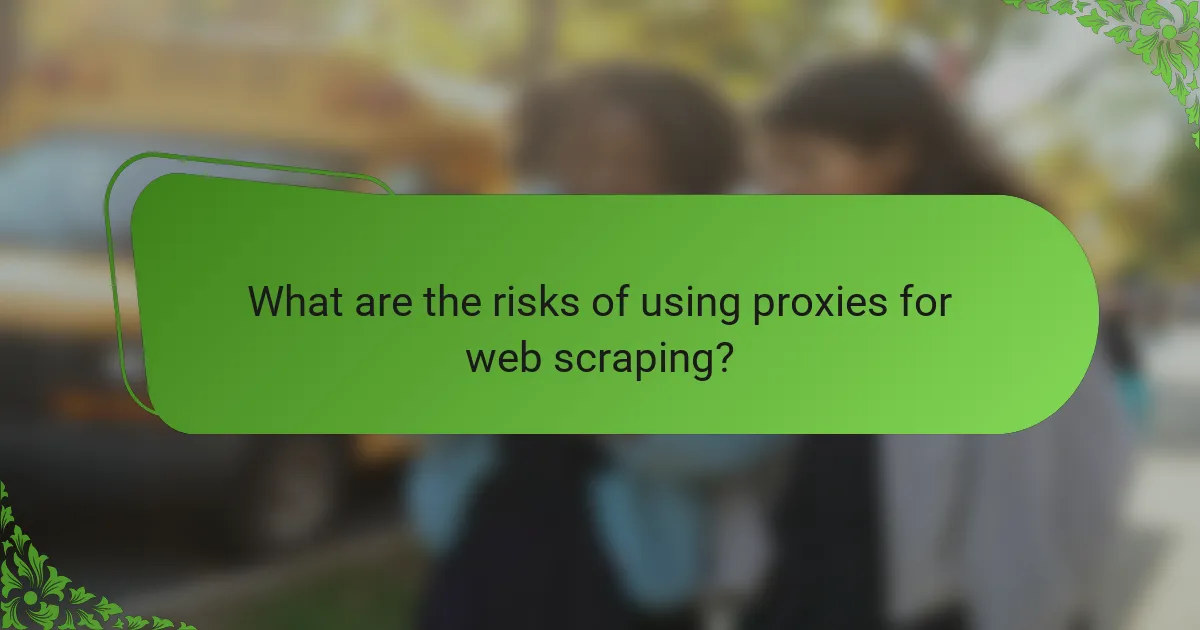
What are the risks of using proxies for web scraping?
Using proxies for web scraping can expose users to various risks, including legal issues and service reliability concerns. It’s crucial to understand these risks to navigate the complexities of web scraping effectively.
Legal implications
Web scraping with proxies can lead to legal challenges, particularly if the target website has terms of service that prohibit automated data extraction. Violating these terms may result in lawsuits or being banned from the site.
In many jurisdictions, scraping can also infringe on copyright or data protection laws. For instance, the General Data Protection Regulation (GDPR) in the EU imposes strict rules on data collection, which can affect how proxies are used for scraping.
Service reliability
Reliability of proxy services can vary significantly, impacting the effectiveness of web scraping. Free proxies often suffer from slow speeds, frequent disconnections, and limited bandwidth, which can hinder data collection efforts.
Investing in reputable paid proxy services typically offers better performance and stability. Look for providers that guarantee uptime and offer a range of IP addresses to reduce the risk of being blocked by target websites.
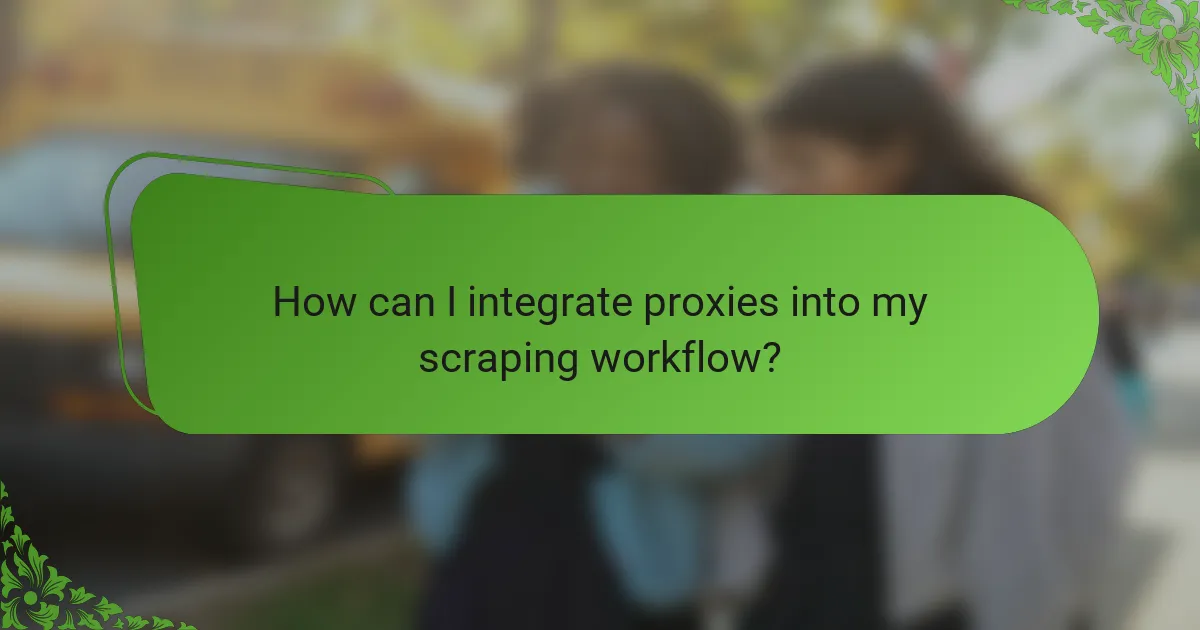
How can I integrate proxies into my scraping workflow?
Integrating proxies into your scraping workflow enhances anonymity and helps avoid IP bans. By routing requests through multiple proxy servers, you can distribute traffic and improve the efficiency of your data collection.
API integration
To integrate proxies via API, choose a proxy service that offers a robust API. This allows you to programmatically manage proxy rotation, monitor usage, and handle errors effectively. Most services provide documentation for seamless integration.
When using an API, consider the rate limits imposed by your proxy provider. Ensure your scraping scripts respect these limits to avoid throttling or bans. A good practice is to implement exponential backoff strategies for retries.
Browser configuration
Configuring your browser to use proxies is straightforward. Most browsers allow you to set proxy settings in their network preferences. You can specify the proxy address and port, which will route all traffic through the selected proxy.
For automated scraping, consider using browser automation tools like Selenium. These tools can be configured to use proxies by setting the appropriate options in the driver initialization. This method allows for more complex interactions while maintaining anonymity.

